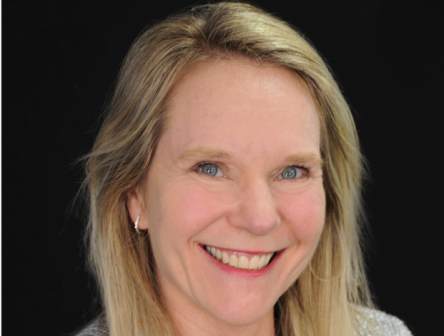Creative Content Australia executive director, Lori Flekser.
Creative Content Australia has delivered a scathing assessment of the Productivity Commission's draft report on intellectual property.
Creative Content Australia (formerly IP Awareness Foundation) executive director, Lori Flekser, said she had major concerns with the 600 page report on IP arrangements, issued on April 29.
"At almost 600 pages, this will clearly take some time to read and absorb," she said.
"But on initial reading, Creative Content Australia has some immediate concerns about how these recommendations would affect consumers, the creative community and Australia’s ability to develop a sustainable digital economy.
"The report suggests that more accessible content is the key to reducing online copyright infringement, rather than increasing enforcement efforts or penalties.
"We know this to be untrue."
Flekser said annnual independent research commissioned by Creative Content Australia since 2008 had consistently and unequivocally reflected the key reason for piracy: because it’s free.
This finding reflects international research, and indeed the government’s own study in 2015 (Online Copyright Infringement, Dept of Communications research 2015), where 55 per cent of respondents confirmed that they downloaded/streamed infringing content “because it’s free”.
Despite the increase in legal content services in Australia, and the downward pressure of price competition, it is the awareness of legal initiatives (including the Copyright Infringement Bill 2015), rather than the availability of content, that is the main reason given by 53 per cent of pirates who have stopped or reduced their activity (GFK Retail Tracking and ConsumerScope study 2015), according to a Flekser.
Using a current example, Episode 1 of Game of Thrones Season 6 premiered on April 25 in Australia.
The episode was available to Australian audiences for a reasonable cost and at the same time as the rest of the world.
Despite that, Australia represented the highest percentage of all BitTorrent downloads – 12.5 percent in the 12 hours after going to air, Flekser said.
"I consider the cost – around the cost of two or three cups of coffee – a fair price to pay for an hour of this popular culture phenomenon, which costs in excess of US$6 million per episode to make," she said.
"Access and price are not viable arguments in this case, yet more than 100,000 Australians chose illegal websites to watch Episode 1 of Game of Thrones Season 6.
"There is no lack of evidence showing that movie piracy peaks when the DVD, Blu-ray and SVOD versions become available.
"The impact is not only confined to international films. Australian film Mad Max: Fury Road was downloaded 36.6 million times in 2015.
Flekser said the creative industries were striving to deliver content to consumers in a timely and affordable way.
"Strong copyright laws ensure the vibrancy and growth of the creative sector which in turn contributes to the economy, provides growth and stimulates local culture. Copyright facilitates innovation rather than hindering it.
"Creative Content Australia will continue to inform the debate on copyright with fact-based evidence and comprehensive research.”
Productivity Commissioner, Karen Chester, said, “No matter how you measure it, Australia overwhelmingly imports more IP than it exports — and this gap is widening."
"Most of the profits from excessive IP rights flow offshore, while Australian consumers and taxpayers are left to pick up the tab,” said commissioner Karen Chester."
Despite many of Australia’s IP arrangements being locked-in by trade agreements, the commission has identified a workable bundle of reforms.
The commission maintains Copyright is important for rewarding creative endeavour.
"But in Australia, it is more a case of ‘copy(not)right’," according to a Productivity Commission statement.
"Copyright is pervasive, affecting everyone from hip hop artists sampling music, school children watching a documentary in class, libraries and museums preserving Australia’s history, to innovative researchers accessing databases for data mining.
"Copyright protection lasts too long — a book written today by an author who lives for another 50 years will be protected until 2136."
Chester said Australia needed a new, principles-based, fair use exception, to protect user rights without undermining the incentive to create."
“Surveys reveal much online copyright infringement is out of sheer frustration from poor access," she said.
"The best antidote to copyright infringement is accessible and competitively priced online content, not draconian penalties and big brother enforcement.”
“Rights holders and their intermediaries need to do more to deliver timely and accessible content.
The Government should also make clear that Australians should be able to circumvent geoblocking technology."
The Commission is inviting submissions on the draft report by June 3 2016 and will hold public hearings in June.



